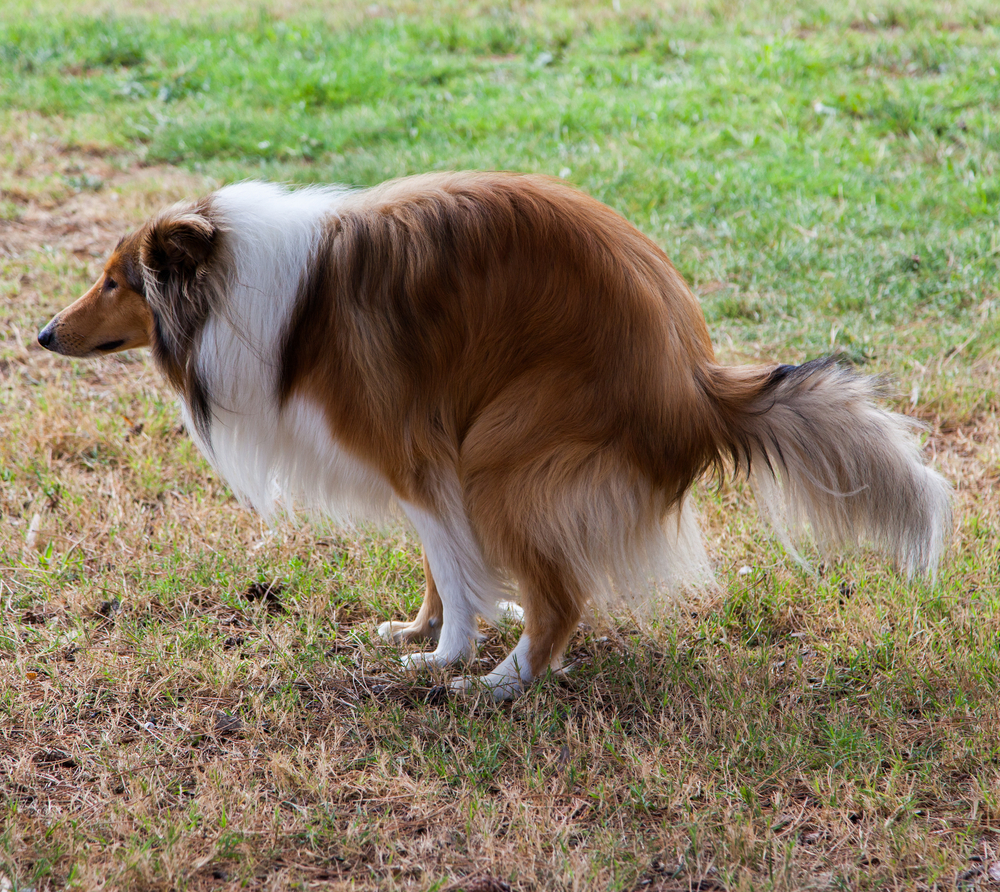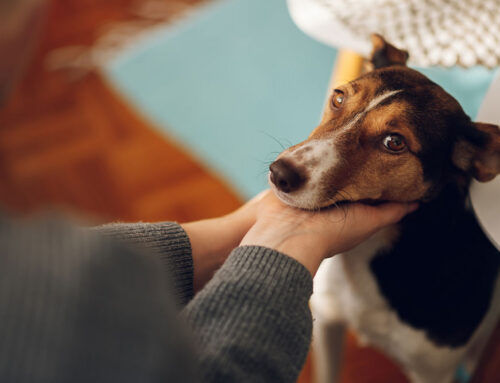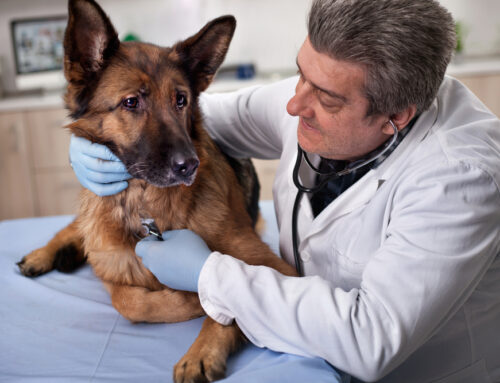Diarrhea is a common problem in dogs that can be a minor annoyance, or seriously impact your pet’s health, depending on the underlying cause. Several causes of diarrhea are preventable and easily treatable, but left unchecked, can progress to life-threatening illness. At Guam Pet Hospital, we recognize the value of pet owner education. We would like to share with you the most common reasons for diarrhea in Guamanian dogs, how to prevent them, and when to seek veterinary care.
#1: Intestinal parasites in dogs
Intestinal parasites, or the dreaded “worms,” are common in dogs. These include roundworms, hookworms, whipworms, tapeworms, giardia, and coccidia. Almost all puppies are born with at least one type of parasite—most commonly roundworms—transmitted in utero from their mother. Once worms reach maturity in the host dog’s intestines, their eggs are passed from the host’s stool into the environment. The next host ingests the eggs, and starts the cycle over again. Giardia and coccidia are actually protozoa, not worms, but transmission is similar to worms, except that giardia often reside in standing water. Tapeworms need an intermediate host, so your dog can get them if they ingest an infected flea or rodent.
Intestinal parasites commonly cause diarrhea in dogs, and may also cause weight loss, anemia from blood loss, a bloated “pot-belly,” and intestinal blockage in severe cases. Parasites are rarely visible to the naked eye, with the occasional exception of roundworms passed in stools after deworming. Your veterinarian can diagnose a parasitic infection by examining a stool sample, prescribe oral deworming medications, and recommend an effective monthly preventive to treat parasites on an ongoing basis.
#2: Parvovirus in dogs
Parvovirus, or “parvo,” is a life-threatening, highly contagious illness that most often affects puppies, but can strike any dog who is not up to date on their vaccinations. Parvo causes severe diarrhea, dehydration, appetite loss, and a secondary bacterial bloodstream infection that can quickly lead to death. Antibiotics can’t kill a virus, so the only treatment is supportive, and includes isolation to prevent spread to other pets, IV fluids for dehydration, and antibiotics to combat secondary infections. Without continuous support, many dogs with parvo die.
Parvo can be devastating and treatment is costly, but a highly effective vaccination can prevent this illness. Puppies are protected with a series of three to four boosters, and adults need boosters every three years.
#3: Dietary indiscretion in dogs
Getting into the garbage, eating table scraps, grass, or other “nature,” and swallowing bones all qualify as dietary indiscretions in dogs. Diarrhea may result anytime a dog eats something inedible, or food they aren’t used to. Depending on what and how much they ate, diarrhea can range from mild to severe, and can result in an intestinal perforation or blockage.
To prevent dietary indiscretion and avoid the associated diarrhea, monitor your dog when they are outdoors, and always introduce new foods slowly. You should also monitor your dog when giving chews and toys, to ensure they don’t swallow any pieces.
When to seek veterinary care for diarrhea in dogs

To prevent common diarrhea causes, see your veterinarian regularly for deworming, parasite preventives, stool sample examinations, and vaccinations. Ensure diets are changed slowly, and supervise your dog to prevent them eating things they shouldn’t.
If your dog develops diarrhea but is normal otherwise, try a bland diet for a one or two days. A bland diet consists of one part lean protein (e.g., chicken, scrambled eggs) to three parts carbohydrate (e.g., potato, rice), fed in small, frequent amounts. If this fails to resolve the problem, call your veterinarian for an appointment.
Diarrhea accompanied by vomiting, lethargy, belly pain, or known ingestion of an object could be serious or life-threatening. Call your veterinarian for an urgent appointment if these signs develop.
Some diarrhea cases can become chronic, so tell your veterinarian if your dog has diarrhea that keeps reoccurring. They may order more tests like blood work or X-rays to evaluate your pet’s overall health. Some possible causes of ongoing diarrhea include:
- Intestinal diseases — Inflammatory bowel disease, lymphangiectasia, lymphoma
- Bacterial infections — E. Coli, salmonella, clostridium, small intestinal bacterial overgrowth (SIBO)
- Systemic diseases — Liver disease, pancreatitis, exocrine pancreatic insufficiency, Addison’s disease
- Miscellaneous — Stress, overactivity, food allergy
The team at Guam Pet Hospital can help prevent the most common diarrhea causes in your dog. However, if your pet experiences a serious or ongoing case, we will be with you every step of the way through diagnosis, treatment, and follow-up. Call us to schedule an appointment if your dog develops diarrhea, or for your dog’s regular deworming, stool testing, and vaccinations.








Leave A Comment